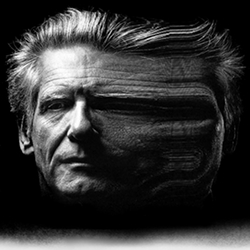
Review: The Bang Bang Club
Apart from being uncommonly pretty people, Ryan Phillippe, Taylor Kitsch and Malin Akerman share a conspicuous inability to perform a credible South African accent. That the trio are also the principle cast of The Bang Bang Club – adapted from the late apartheid era memoirs of prominent South African conflict photographers – is telling of the film’s priorities.
Writer-director Steven Silver succeeds at capturing the violent spectacles amid which the titular protagonists made their names, but just as his actors flub the region’s linguistic subtleties, Silver fails to illuminate the complex ethnopolitical context of the bloodshed he reenacts. Beyond a token introductory caption, the film offers precious little to explain its frequent scenes of black-on-black brutality, focusing instead on the cadre of photojournalists whose fearlessness, and whose whiteness, afforded them neutral, bipartisan access to the township battlegrounds.
Greg Marinovich (Philippe), Kevin Carter (Kitsch), Ken Oosterbroek (Frank Rautenbach) and João Silva (Neels Van Jaarsveld) earned their “bang bang” moniker for their crossfire-dodging exploits in Soweto’s embroiled settlements, but the quartet apparently also won plenty of female admirers. Silver juxtaposes their foolhardy photographic forays with raucous post-shoot celebrations, as the renown and royalties brought by global syndication quickly turn the group into combat-snapping rock stars (requisite sex and drugs included).
The incongruity of the pairing – anguished subjects, jubilant journos – implies what Silver otherwise makes explicit. When Marinovich angrily chides his editor/girlfriend (Akerman) for struggling to steady a lamp as he preps a composition of a murdered baby, we can’t help but get the picture: it’s all too easy to misstep the line between journalistic detachment and callous exploitation.
It’s particularly ironic, then, that The Bang Bang Club falls afoul of a similar quandary. Silver’s set pieces are thrilling, and authentically savage, but he appears less concerned with the human causes and costs of the upheaval. Even his leads remain emotionally and motivationally distant, and this is doubly true of the anonymous African masses tasked with filling out his frames.
If there’s a partial exception, it’s Carter, who’s the film’s most conflicted character, if not its least clichéd. Both he and Marinovich won Pulitzers for gut-wrenching depictions of extreme suffering, and their contrasting reactions come to represent the film’s central dichotomy. Philippe’s Marinovich is unperturbed by questions of ethical propriety, but Kitsch, as Carter, is tortured. Carter, in fact, committed suicide in 1994, overcome by guilt and devastated by the death of Oosterbroek, who was struck by a stray bullet three months before. Marinovich was severely wounded in the same exchange.
The film depicts both events, but these reenacted tragedies, like South Africa’s larger turmoils, never fully register. Silver’s background is in documentary filmmaking, and it’s difficult to escape the notion that his material is ideally suited to an account constructed from archival resources. Rather than recreating the indelible originals, he might have devoted his abilities to better conveying the broader circumstances in which the famous photos were taken.
The Bang Bang Club is now available on DVD and Blu-ray from eOne films.
Related Posts
Latest posts by Julian Carrington (see all)































Pingback: Review: THE BANG BANG CLUB « a Healthy Disdain